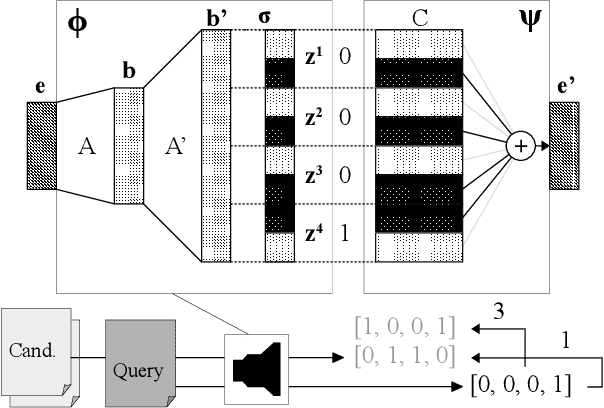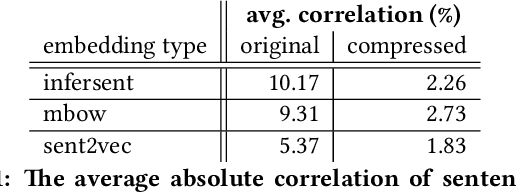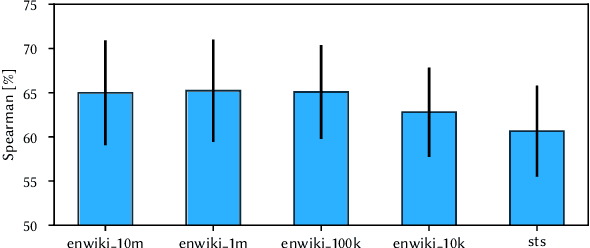Hamming Sentence Embeddings for Information Retrieval
Paper and Code
Aug 15, 2019



In retrieval applications, binary hashes are known to offer significant improvements in terms of both memory and speed. We investigate the compression of sentence embeddings using a neural encoder-decoder architecture, which is trained by minimizing reconstruction error. Instead of employing the original real-valued embeddings, we use latent representations in Hamming space produced by the encoder for similarity calculations. In quantitative experiments on several benchmarks for semantic similarity tasks, we show that our compressed hamming embeddings yield a comparable performance to uncompressed embeddings (Sent2Vec, InferSent, Glove-BoW), at compression ratios of up to 256:1. We further demonstrate that our model strongly decorrelates input features, and that the compressor generalizes well when pre-trained on Wikipedia sentences. We publish the source code on Github and all experimental results.
 Add to Chrome
Add to Chrome Add to Firefox
Add to Firefox Add to Edge
Add to Edge